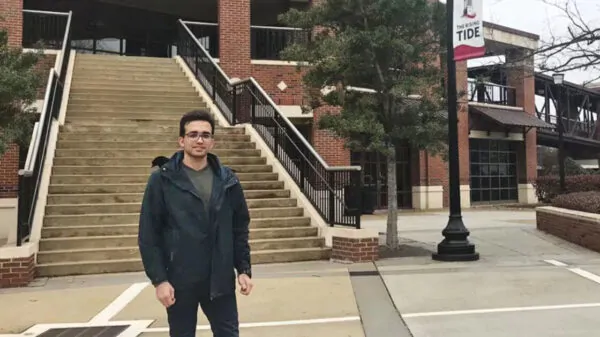By Brandon Moseley
Alabama Political Reporter
On Monday, December 14, US Senator Jeff Sessions (R-Alabama) and Senator Bill Nelson (D-Florida) introduced the Protecting American Jobs Act (Senate Bill S2365), which would cut the base allocation of H-1B visas by 15,000. The bill would also eliminate the random H-1B visa lottery and replace it with a system that prioritizes the highest-wage applications.
The legislation follows a series of scandals in which terminated American workers were forced to train their foreign replacements, including at Florida Disney and Southern California Edison, where American workers lost good paying jobs to foreign workers so greedy corporate managers could game the immigration system in order to improve their bottom lines.
Sen. Jeff Sessions said, “This straightforward proposal will transform the H-1B program through two important, commonsense reforms. First, it will greatly reduce the use of the H-1B for low-wage labor by awarding H-1B applications to the companies that offer the highest wages. Second, it will cut 15,000 low-wage H-1B visa slots to open up 15,000 higher-paying jobs for Americans. 3 in 4 Americans with STEM degrees do not have STEM employment: there is a huge surplus of talented American labor being bypassed, displaced or even forced to train their foreign replacements. The Protecting American Jobs Act will help shield American workers from these abuses and create much-needed opportunities for young, driven American students. Too often, the special interests direct the legislative agenda; this legislation is the kind of positive reform that should be embraced by both parties on behalf of all US residents.”
Sen. Nelson said, “By cutting the number of visas available each year and requiring those visas be given to the highest-wage earners first, this bill directly targets outsourcing companies that rely on lower-wage foreign workers to replace equally-qualified US workers.”
H-1B expert, and Howard University Professor, Ron Hira said, “Two big myths pushed by the powerful technology industry lobbyists are that there is a shortage of American technology workers and that the H-1B program is used to bring in the best and brightest. But the reality is far different: the government currently allocates most H-1B visas to foreign workers with ordinary skills to take jobs that could easily be filled by an abundant supply of domestic workers. Large outsourcing firms exploit loopholes in the program by flooding the government with applications in order to bring in H-1B workers who are cheaper than Americans. More than 80 percent of H-1B visas are awarded to workers being paid less than the average wage in their field. Many of those H-1B workers have lower skills than the American counterparts they are going to replace, and the American workers often have to train their H-1B replacements. Instead of giving visas to foreign workers with ordinary skills, this bill would allocate the visas only to the most highly skilled foreign workers – making it more difficult for employers to abuse the program.”
Professor Hira said, “By contrast, the I-Squared bill moves the cap in the wrong direction, effectively tripling the number of H-1B workers, and will expand H-1B abuse. It expands the egregious H-1B abuse of cases like Disney, Catalina Marketing, Southern California Edison, where American workers were forced to train their lesser-skilled and cheaper H-1B replacements. Further, the biggest beneficiaries of I-Squared will be the IT outsourcing companies that replace Americans with cheaper H-1Bs. The losers from I-Squared will be American workers and students who will be replaced, denied positions, and have their wages undercut.”
Senator Jeff Sessions has been a vocal opponent of the wide open immigration policies that President Barack, the US Chamber of Commerce and many establishment Republicans espouse.
Senator Sessions serves on four Senate committees: Armed Services, Budget, Environment and Public Works, and Judiciary, where he is Chairman of the Subcommittee on Immigration and the National Interest.




















































